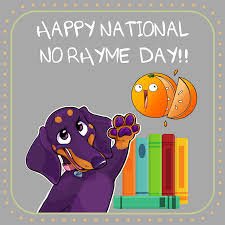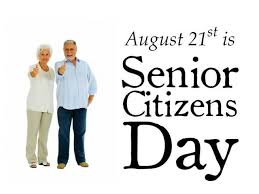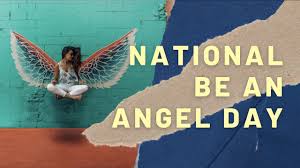National No Rhyme Nor Reason Day – September 1, 2022, history, quotes
National No Rhyme Nor Reason Day, celebrated on September 1, aims to recognize words that do not rhyme with anything. It also encourages activities and actions performed without a reason. Yes, this day is very random, but that’s exactly what makes it so enjoyable. And guess what? It is based on a famous idiom from a Shakespearean play. So without further adieu, understand the entertainment factor behind the day and celebrate it to the fullest. Here are a few non-rhyming words to get you started: ‘orange,’ ‘woman,’ ‘purple,’ ‘spirit,’ and ‘chimney.’ Now come up with a list of your own and start sharing.
To argue with a man who has renounced the use and authority of reason, and whose philosophy consists in holding humanity in contempt, is like administering medicine to the dead, or endeavoring to convert an atheist by scripture.
Thomas Paine,
worldtimeshindi.com
HISTORY OF NATIONAL NO RHYME NOR REASON DAY

The National No Rhyme Nor Reason Day is based on an idiom that has existed since 1460 in the English Language. It was first read in the book “The Boke of Nurture” by John Russell, and then later made an appearance in the Shakespearean play “Comedy of Errors” in 1950. It was used again in the play “As You Like It” in 1600. Of course, being used in such famous plays ensured the popularity of the idiom and it has now become a phrase that is used by billions of people.
Once again, you show all the sensitivity of a blunt axe.
J.K. Rowling
worldtimeshindi.com
For those who don’t know, idioms are figures of speech that have a different meaning as opposed to the literal meaning of the phrase. A popular idiom that serves as a great example is “It’s raining cats and dogs.” The idiom basically describes heavy rain. Over time, idioms became so popular that there are over 25,000 idioms in the English language alone.
Rhymes, on the other hand, refer to words that sound similar. The act of rhyming has existed for centuries and has been used by poets of different languages to write ballads and sonnets. One of the earliest rhymes found is from the 10th century B.C., in China.
It is known as the Chinese Shi Jing. And this may seem intriguing, but many religious texts also use rhyming words, for instance, rhymes are also used in some of the texts in the Bible. Rhyming started to increase dramatically during the 6th and 7th centuries when the Arabic and the Irish used rhyming words to form a tune in the written text.
A good speech should be like a woman’s skirt; long enough to cover the subject and short enough to create interest.
Winston S. Churchill
worldtimeshindi.com
Other Celebrations on September 1
September 1 is also celebrated as
Building and Code Staff Appreciation Day
Emma M Nutt Day
He’d felt like a jack-o-lantern for the past few days, as if his guts had been yanked out with a fork and dumped in a heap while a grinning smile stayed plastered on his face.
Cassandra Clare
worldtimeshindi.com
NATIONAL NO RHYME NOR REASON DAY TIMELINE
1500
Milky Way
The expression “Till the cow comes home” is formed.
Early 1900s
The Big Break
The idiom “Break a leg” is seen in print.
1930s
Sweet Words
American poet Ogden Nash uses the phrase “Life’s a piece of cake” in a poem.
Late 1900s
Light Up
The phrase “Close, but no cigar” becomes popular — it originates from carnival games where the prize was a cigar.
NATIONAL NO RHYME NOR REASON DAY ACTIVITIES
List down words that don’t rhyme
To celebrate the day, list down words you think don’t rhyme with any other word in the English vocabulary. Don’t cheat!
Do things without a reason
Since this day is about no rhyming, and doing things without reason, it is the ideal time to break out of your shell and do something completely random. Go on a road trip, book a ticket, feed someone a meal — do anything your heart desires.
Write a no rhyme poem
Write a poem — but one that has no rhyming stanzas. It should just be a poetic work of art that has a beautiful meaning.
5 FUN FACTS YOU NEED TO KNOW ABOUT RHYMING WORDS
Derived from French
The word ‘rhyme’ originated from ‘rime’ or ‘ryme.
Meaning in German
In German, ‘rhyme’ means series or sequence.
Used by Shakespeare
The writer used rhyming couplets to end a scene in a play.
The power of rhyming words
They are a mnemonic device that aids in memorization.
Eye rhymes
Eye rhymes are rhymes such as cough and bough — they have similar spellings but different pronunciations.
WHY WE LOVE NATIONAL NO RHYME NOR REASON DAY
It’s fun
The day can prove to be quite fun if you spend it the right way — i.e playing games with friends and family. And no, finding words that don’t rhyme is not a piece of cake.
It teaches different words
Are you fond of learning new things? This day is the perfect occasion to increase your vocabulary and find words you have never heard before.
It makes people do fun things for no reason
According to the theme of the day, you are expected to do things without a reason. Hence, it actually helps people in doing something different without thinking.
HOW TO CELEBRATE NATIONAL NO RHYME NOR REASON DAY
Celebrate the day by learning these kinds of words, or by writing down a list of words that you think cannot be rhymed and check if you are correct. Also, share images and your thoughts about the day with others on social media by using the hashtag #NoRhymeorReasonDay.
NATIONAL NO RHYME NOR REASON DAY FAQS
Is it rhyme or reason or rhyme nor reason?
The correct phrase is ‘No rhyme nor reason’. This is also a famous idiom.
What is no rhyme no reason day?
National No Rhyme Nor Reason Day recognizes words that do not rhyme in the English language.
What is the difference between rhyme and rime?
Rhyming is using words that sound similar. Rime is an opaque coating of snow or ice over trees.
Sandeep Raiza — Content Writer, Website Designer, SEO Strategist, and WordPress Expert AI specialist delivering impactful digital solutions that drive business growth.Combining creative storytelling with technical expertise.




